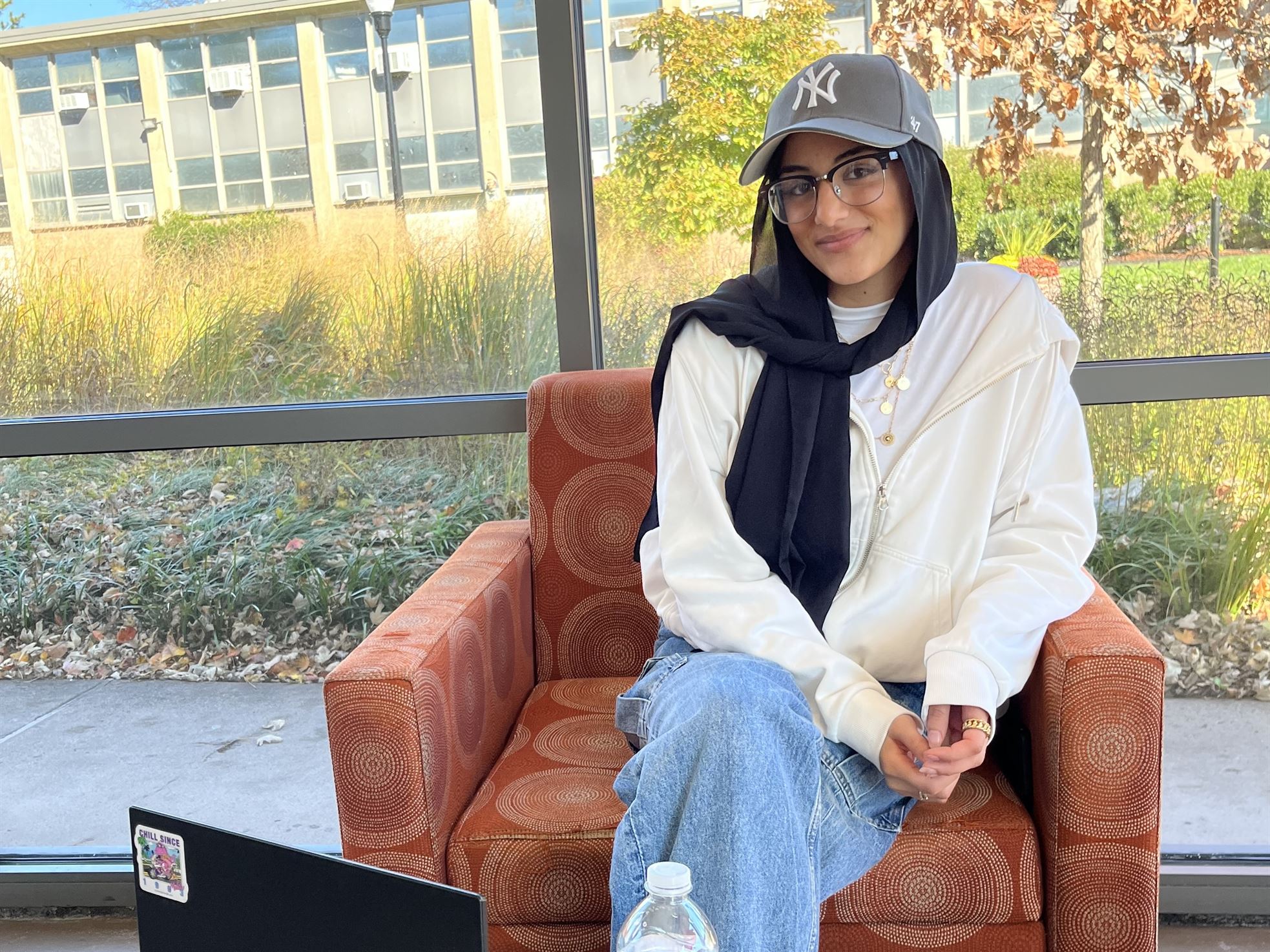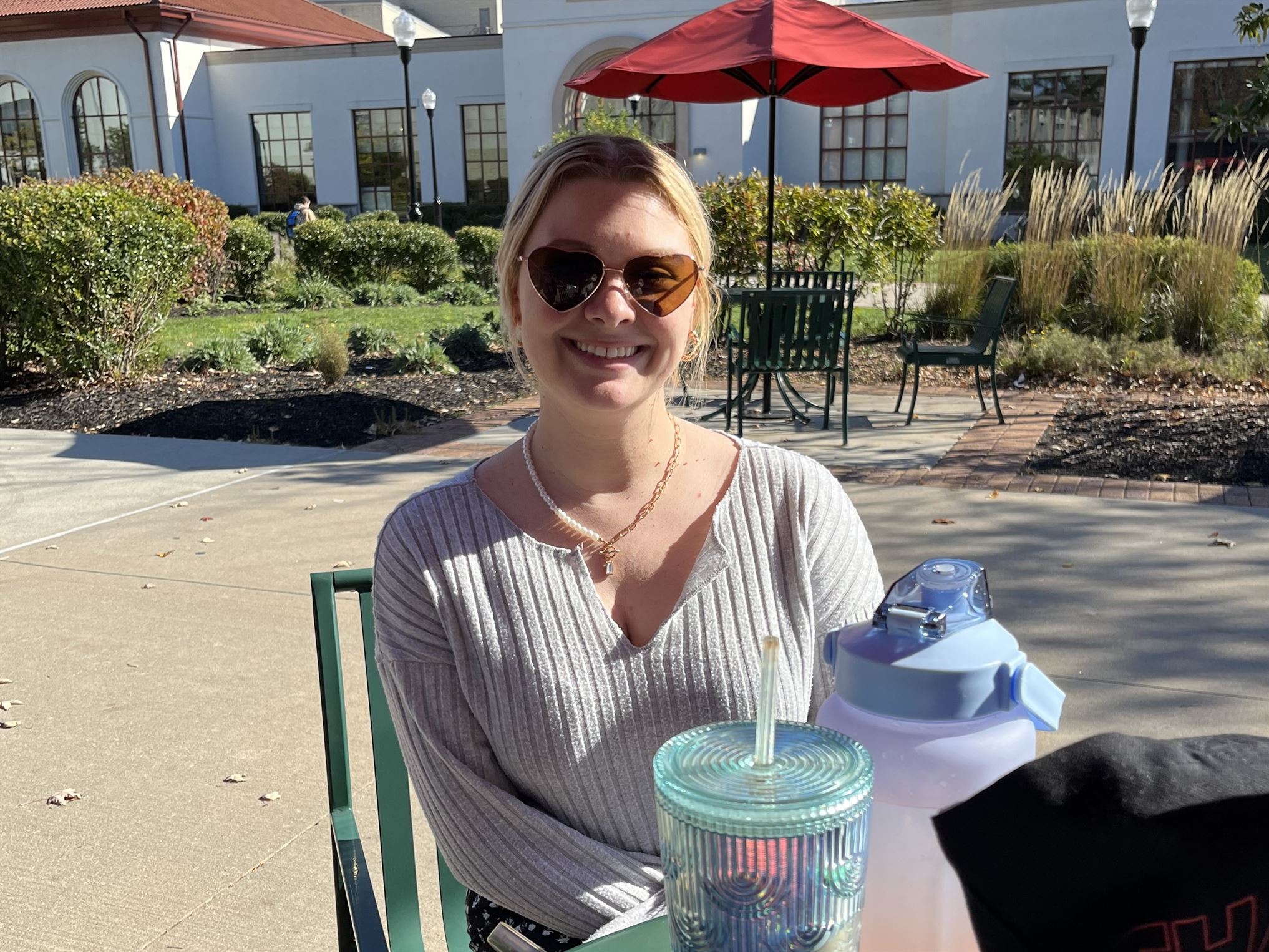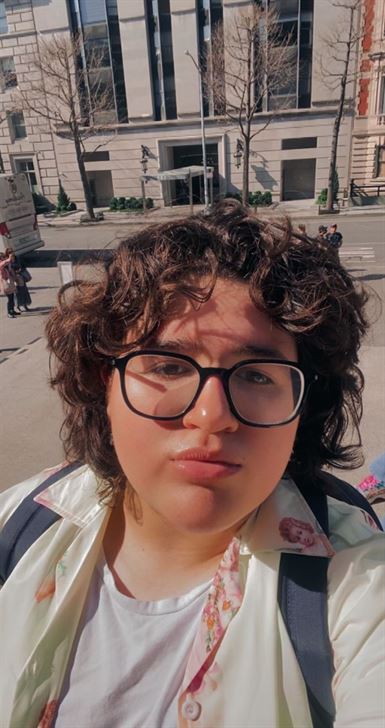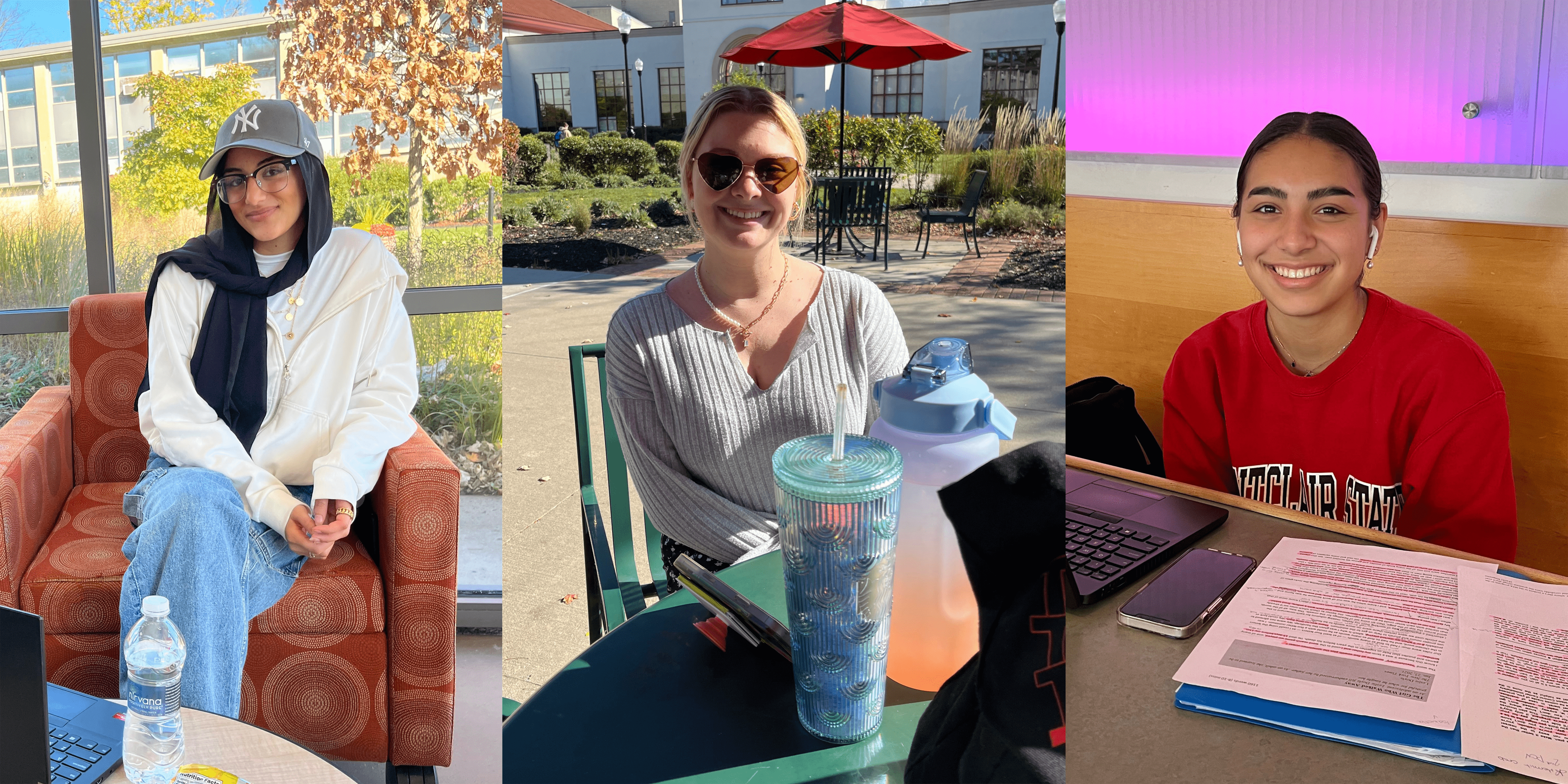Women’s rights are one of the most driving issues for young adult voters. After the federal right to an abortion was overturned this past summer, many young women, including college students, have taken a stand to protect themselves. At Montclair State University, there is no shortage of women speaking out about the issue. Female-identifying Montclair State students recognize just how powerful their votes can be in the fight for reproductive rights in the midterm elections.
Lina Nasser, a sophomore business administration major, placed her hopes on her generation, Generation Z, to advocate for progressive change.

Lina Nasser, a sophomore business administration major, hopes that her fellow college students vote for women’s rights.
Chelsea Pujols | The Montclarion
“Our generation is more diverse and more open-minded,” Nasser said.
Bella Verma, a sophomore dance major, recognized that her individual vote and advocacy can influence many.
“I think based on who I vote for, it will influence others,” Verma said. “And hopefully make changes in New Jersey for the better.”

Bella Verma, a sophomore dance major, is aware of how her engagement in the civic process can make a difference.
Chelsea Pujols | The Montclarion
While many shy away from the topic of politics, most female-identifying students recognized the importance of Nov. 8 and their vote in a post-Roe v. Wade world. Most understand the importance of their individual vote, but they hope for more like-minded people to continue to take to the polls in order to keep the state’s current stance on reproductive rights, which is in favor of abortion.
Ashley Gialloreto, a senior nutrition and food science major with a concentration in dietetics, said that many take New Jersey’s Democratic blue status for granted.
“I guess I don’t think about it too much, we’re fairly Democratic,” Gialloreto said.

Ashley Gialloreto, a senior nutrition and food science major with a concentration in dietetics, hopes her peers don’t take their rights for granted.
Chelsea Pujols | The Montclarion
While New Jersey has remained a blue state in presidential elections since 1992 according to a report from Ballotpedia, more conservative views have crept up to the surface in recent years as seen in the 2021 gubernatorial election. Democrat Phil Murphy beat Republican Jack Ciattarelli almost by the skin of his teeth, having 51.2% of the vote while Ciattarelli had a close 48%, which could be concerning for Democrats or left-leaning people who are often the ones in favor of protecting reproductive rights.
While Gov. Phil Murphy already signed legislation to secure the right of reproductive choice in January 2022, that could be put at risk if conservative-leaning officials are elected to represent New Jersey. Many states like California, Michigan and Vermont voted to codify reproductive rights into the states’ constitutions as voters were given the opportunity to vote on this issue via approving Proposition 1, Proposal 3 and Article 22, according to CBS News.
Nathalie Afanador, a sophomore political science major, said she feels that being complacent with the guarantees here in New Jersey isn’t enough.

Nathalie Afanador, a sophomore political science major, feels that her peers should be more engaged in the civic process.
Photo courtesy of Nathalie Afanador
“While New Jersey is a blue state that already grants reproductive rights, I believe that we must push for it to continue in our constantly changing political climate,” Afanador said. “There is much more work to be done besides granting reproductive rights to NJ’s citizens but also making sure it is accessible and [giving] resources [that] are publicly known for everyone that wishes to seek it. We must continue to vote in favor [of] it for that reason.”
Jim Fraser, an adjunct professor of political science, echoed the sentiment that while voting is extremely important, people must also think beyond Nov. 8.
“In the days and weeks following the Supreme Court’s decision to overturn Roe [v.] Wade, the issue of reproductive rights for women seemed to be a strong motivating factor for voters, especially among Democrats,” Fraser said. “Whatever someone’s position is on an issue like Roe [v.] Wade, it’s so important to get involved and have your voice heard.”
While many regard reproductive rights as strictly a women’s issue, writing studies professor Shiladitya Sen discouraged that line of thinking. He credited the way society is taught to regard women’s issues as something that greatly affects our vote and political opinion and encouraged everyone to begin to unlearn what we have been taught.
“If we teach people that they should care about, first and foremost, what benefits themselves, then it’s to be expected that a whole host of people will not care about reproductive rights, since they see it as a women’s issue that does not pertain to them,” Sen said.
Sen also emphasized that reproductive rights affect every aspect of our lives and our vote is beyond a piece of paper at a voting center, which is why he encourages all genders and identities to cast their ballot.
“‘Women’s rights are human rights’ may be a cliche, but it should be self-evident that it’s true,” Sen said. “And if one exercises even a modicum of critical thought, it should be quite obvious that reproductive rights intersect heavily with the economy, with healthcare, with climate issues, with just about anything that you can mention. Voting to ensure that reproductive rights are protected in this country is not just the ethically correct choice but the selfish one too, since it benefits everyone, in the short and especially the long run.”



